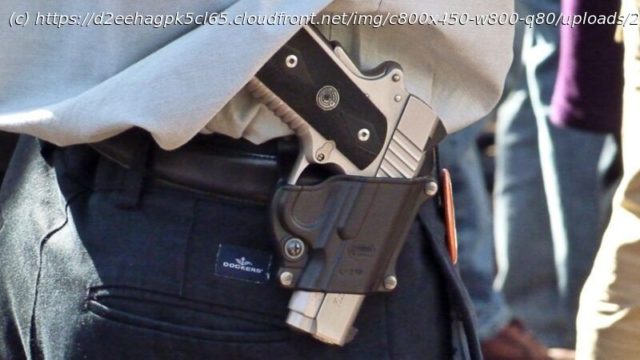The law is one of several attempts to override the right to bear arms by making it impractical to exercise.
The Supreme Court on Friday agreed to hear a Second Amendment challenge to a Hawaii law that bans guns on private property open to the public without the owner’s „express authorization.“ The case, Wolford v. Lopez, involves one of several attempted end runs around the Court’s 2022 ruling in New York State Rifle & Pistol Association v. Bruen, which upheld the constitutional right to carry guns in public for self-defense without demonstrating a „special need.“
Several states, including New York, Hawaii, California, Maryland, and New Jersey, responded to Bruen by making carry permits easier to obtain but much harder to use. They banned guns from long lists of „sensitive places“ that covered a lot of territory, which in many cases made it impractical to legally exercise the right that the Supreme Court had recognized.
The broadest of those restrictions was a default rule that people could not carry guns on private property, including businesses open to the public, unless they had the owner’s explicit permission. Under Hawaii’s law, that requires „unambiguous written or verbal authorization“ or „clear and conspicuous signage.“
Last year in Wolford v. Lopez, the U.S. Court of Appeals for the 9th Circuit deemed that rule „consistent with this Nation’s historical tradition of firearm regulation“—the constitutional test prescribed by Bruen. „The Second Amendment encompasses the right to bear arms not only in publicly owned spaces, but also on private property that is generally open to the public“, the appeals court conceded. „Equally clear, however, is the right of a private property owner to exclude others, including those bearing arms.“
The 9th Circuit found historical precedent for Hawaii’s restriction in two sets of colonial or state laws enacted in the 18th and 19th centuries. It identified four laws that „prohibited the carry of firearms onto subsets of private land, such as plantations or enclosed lands.
Start
United States
USA — Financial SCOTUS Will Consider a Challenge to Hawaii's Default Rule Against Guns on...






